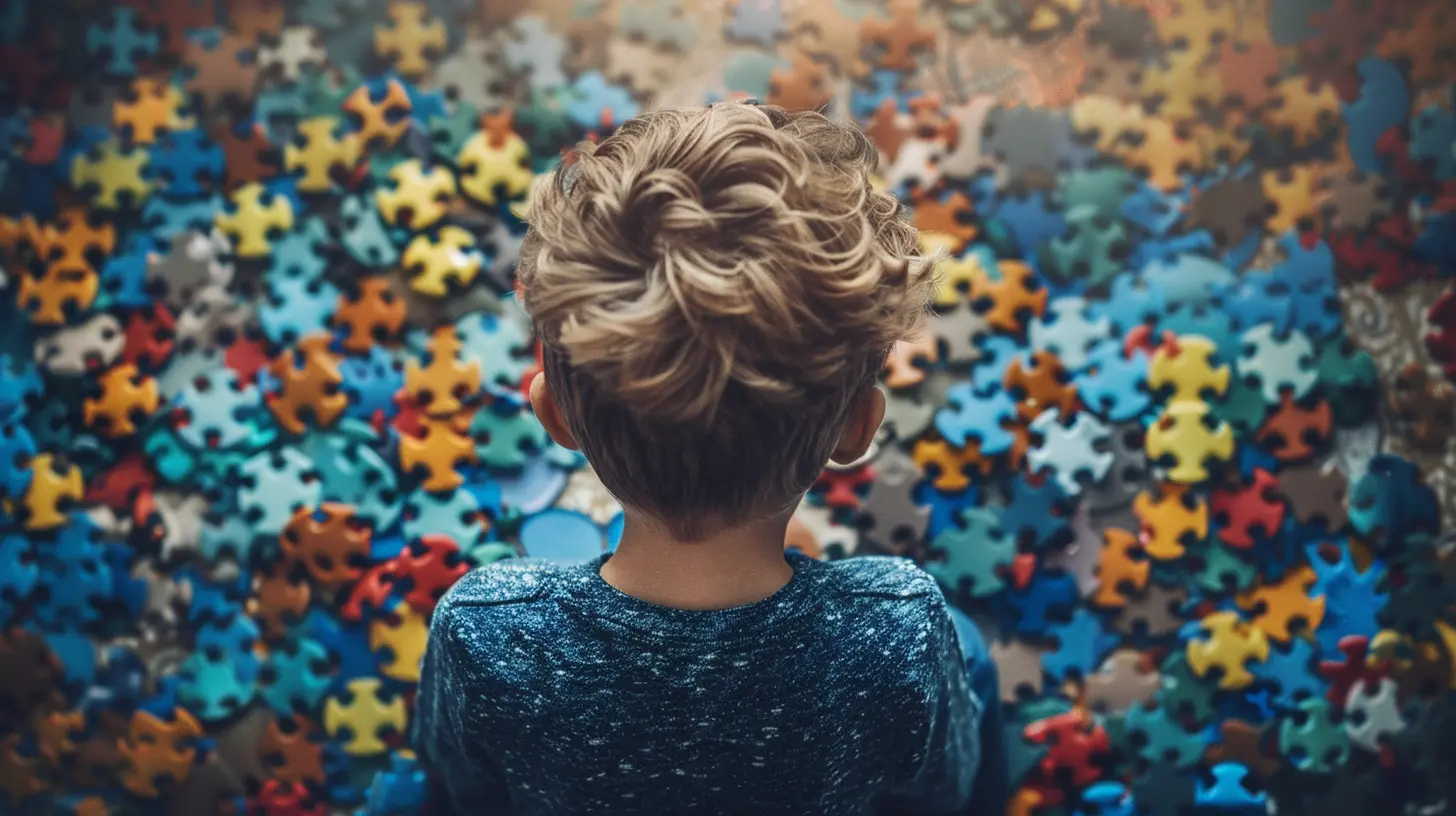Understanding ADHD and How It Affects a Child’s Physical Health
15 October 2025
Let’s face it: parenting is already like herding caffeinated cats. Toss ADHD into the mix, and suddenly, you feel like you’re in a three-ring circus—with one performer juggling flaming swords on a trampoline. Sound familiar?
If you're raising a child with ADHD (Attention-Deficit/Hyperactivity Disorder), you’ve probably read all about the mental and behavioral impacts. But have you ever stopped to consider how it affects your child’s physical health?
We’re peeling back the layers of the ADHD onion to reveal what’s really going on with their bodies—and why you shouldn’t ignore the physical side of this neurodevelopmental condition.
What Even Is ADHD (In Plain English)?
Alright, let's break it down. ADHD is like having a jet engine in your brain, only the steering wheel is a little wonky. Kids with ADHD typically have issues with focus, impulsivity, and hyperactivity. It's not that they choose to ignore you or forget their homework. Their brains are wired differently.Think of it as their internal radio station is constantly switching channels. One minute they're all about dinosaurs, the next it’s snack time, then—ooh, look! A squirrel!
ADHD Isn’t Just a ‘Mind Thing’—It Hits the Body Too
Most people associate ADHD with mental health symptoms: daydreaming in math class, blurting out answers, the classic “can’t sit still to save their life.” But what’s often overlooked is that ADHD has serious effects on the body too. Yep, it’s not all in their head—literally.Get ready, because this is where it gets interesting (and maybe a bit eye-opening).
Sleep Troubles: The Ultimate Bedtime Blahs
Let’s start with sleep. Or rather, the lack of it.Kids with ADHD often struggle to fall asleep, stay asleep, or wake up feeling like actual humans. It’s not that they won’t sleep—they just can’t shut their brains off. Imagine trying to nap during a rock concert in your head. Yeah, not easy.
Why it matters:
Poor sleep affects everything from mood and attention to growth and immune function. Ever tried reasoning with a sleep-deprived 8-year-old who also has ADHD? It’s like negotiating with a highly emotional lawyer who’s had twelve espressos.
Growth and Development: The Slower Climb
This one might blow your mind: some research suggests that ADHD (and, interestingly, the medications used to treat it) can slow down physical growth. We're talking height and weight gains here.Side note: It’s not a huge difference, and kids often catch up later. But still, if your child isn’t sprouting like the garden beans you planted last spring, it might be worth a chat with your pediatrician. Especially if they’re taking stimulant medications like Ritalin or Adderall, which can sometimes suppress appetite.
Nutrition Battles: Picky Eating and the ADHD Appetite Rollercoaster
Raise your hand if mealtime feels like a war zone. Kids with ADHD can be incredibly picky eaters or just plain forget to eat. Then—you guessed it—they’re ravenous at 9 PM when you're ready to collapse.ADHD meds can squash their appetite during the day and send it skyrocketing at night. The result? Nutritional imbalances or even weight issues.
Pro tip: Nutrition matters, big time. These kids need balanced meals packed with protein, healthy fats, and slow-release carbs to keep their energy steady. Think of it like fueling a racecar—you gotta give it the good stuff.
The Clumsiness Factor: Watch Out for Flying Elbows
ADHD and coordination go together like oil and water. These kiddos are often less physically coordinated, bumping into things, tripping over flat surfaces, or knocking over a glass just because.This is partly due to delayed motor skills and partly from not noticing their surroundings—because their brain is already three thoughts ahead.
Result: More injuries, more bruises, and possibly a lot more Band-Aids than you ever expected to buy as a parent.
Chronic Health Complaints: Yes, It’s a Thing
Surprisingly, children with ADHD are more likely to have ongoing physical complaints like:- Headaches
- Stomachaches
- Muscle tension
- And in some cases, allergies and asthma
Is it stress? Is it hyperactivity? Is it the ADHD itself messing with their nervous system? The answer is—probably a mix of all three. The mind and body are connected, after all. When a child is constantly overstimulated, something’s gotta give.
The Stress Impact: Little Bodies Under Big Pressure
While adults tend to “burn out,” kids with ADHD? They melt down. The stress of not being able to focus, getting in trouble at school, or struggling to follow simple instructions can wear their little bodies down.Stress triggers the same hormonal cascade in kids as adults—raising cortisol levels, impacting immune function, and even changing the way their bodies grow and develop.
It’s like their brain is stuck on the “fight or flight” setting—and the rest of their body is just trying to keep up.
ADHD and Exercise: The Good, the Bad, and the Over-Excited
Exercise is one of the best things a child with ADHD can do. Seriously, it’s like nature’s Ritalin. It helps them focus, reduces stress, and improves sleep.But… overdoing it, or not having a structured outlet, can lead to physical burnout or injuries. These kids go hard (and fast), and often ignore signs of exhaustion or pain.
So yes, sports are great—but maybe avoid full-contact karate right before bedtime.
Medication Side Effects: The Double-Edged Sword
Ahh, medications. A lifesaver for many, but not without their quirks.Stimulants (like Adderall, Ritalin, Concerta) are the go-to treatments for ADHD. They help with focus and impulse control, but they also come with side effects that mess with a child’s physical health.
Common offenders:
- Decreased appetite
- Weight loss
- Difficulty sleeping
- Stomach pains
- Headaches
It’s a balancing act. One that requires teaming up with your child’s doctor and possibly tweaking dosages until you find your goldilocks zone—not too strong, not too weak, just right.
Gut Health and ADHD: Are They Linked?
Hold on tight because we’re entering woo-woo territory that’s actually backed by science.There’s a growing connection between gut health and ADHD. That microbiome—yes, the billions of bacteria chilling in your kid’s gut—may play a role in brain function. When gut health is thrown off (thanks, sugar and processed food), it might make ADHD symptoms worse.
Some parents swear by probiotics and dietary changes. While the research is still young, it’s worth keeping an open mind (and maybe a food diary).
So, What Can You Do? Parenting Tips That Won’t Make You Cry
Let’s get practical. You can’t “cure” ADHD, but you can help your child thrive physically as well as mentally.Here’s how:
1. Prioritize Sleep Hygiene
Bedtime routines are your new holy grail. Think: same time every night, no screens an hour before bed, and calming cues like white noise or lavender spray.2. Feed the Brain and Body Right
Swap sugar bombs for brain fuel. Eggs, nuts, fruits, veggies, and whole grains can work magic. Bonus: stable energy, fewer tantrums. SCORE.3. Plan for Physical Outlets
Make movement part of the daily routine. Dance party at 3 PM? Go for it. Just make sure it’s structured and safe.4. Monitor Medication
Work closely with your child’s doctor to find the lowest effective dose. Keep track of side effects—and don’t be afraid to ask questions.5. Track Their Physical Health
Annual checkups, regular weight/height monitoring, and keeping tabs on sleep and nutrition can help catch issues early.6. Listen to Their Bodies (and Teach Them To!)
Help your child tune in. Are they feeling tired, sore, hungry, or stressed? Teaching body awareness is a lifelong gift.Final Thoughts: You’ve Got This
Understanding ADHD and how it affects a child’s physical health is kind of like learning to dance in the rain. It’s messy, exhausting, and sometimes hilarious—but oh-so-worth it.The more you know, the better you can advocate for your child—and help them grow up strong, confident, and wonderfully unique (Band-Aids and all).
Parenting a child with ADHD may take superhero-level patience—but lucky for them, you’ve already got the cape.
all images in this post were generated using AI tools
Category:
Childrens HealthAuthor:

Tara Henson
Discussion
rate this article
1 comments
Zyana Harper
As a parent, navigating ADHD can feel overwhelming. This article brilliantly highlights the connection between ADHD and physical health, offering valuable insights that resonate with our daily experiences. Thank you!
October 25, 2025 at 2:52 AM

Tara Henson
Thank you for your kind words! I'm glad you found the insights helpful in navigating ADHD and its impact on physical health. Your experience matters!


